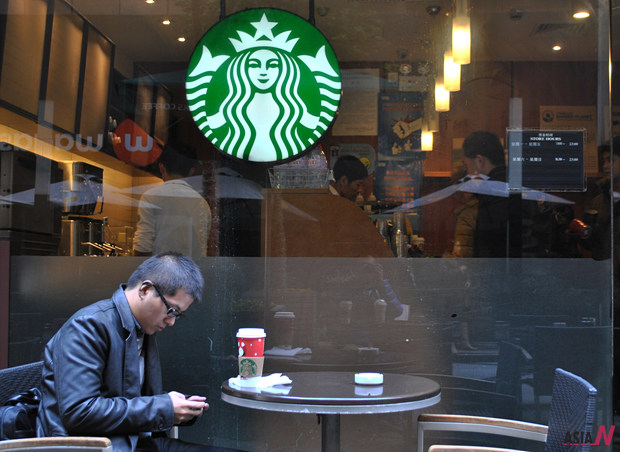
Let civic groups handle injustice
Capitalism suggests minimal state intervention in the market. The basic assumption of a free market economy has been challenged here after economic injustice issues such as the clash of interests between mom and pop stores and large retailers run by conglomerates happened.
Corporations’ business activities have undercut the profits of owners of small stores, pushing them out of business.
Analysts have proposed policymakers or politicians turn their attention to civic and consumer groups, instead of pushing for controversial regulations on businesses to address injustices.
“If shareholders or consumers are allowed to do more and consequently if they influence corporate social responsibility, this could change the way conglomerates do business,” economist Hong Jong-ho said last week.
Hong, a professor of economics at the Graduate School of Environmental Studies of Seoul National University, noted the role of civic groups could be critical to achieve economic justice.
“In a country like Korea where a few conglomerates exert significant influence on the entire national economy, there needs to be a watchdog that can gather information on and monitor corporate activities to help them get on the right track,” the economist said.
Hong made the remarks as the public sector-driven campaign to regulate conglomerates, although they have played by the rules, has backfired.
On Friday, the Korea Chainstores Association (KCA) filed a constitutional appeal, complaining of the law allowing city authorities to force large retailers, such as Home Plus and Lotte Mart, to close on mandatory days and restrict their working hours.
Currently, these retailers operate 24 hours a day, seven days a week. With a wider selection of goods and products and cheaper prices, they have caused small-sized business owners, mostly the self-employed, to suffer.
The KCA claims the regulations on operating hours and forced closures on certain days are unconstitutional.
Starbucks vs. Ethiopia
The backlash from large retailers highlighted the tricky nature of handling economic justice issues in a capitalist society.
Government intervention is supposed to be minimal to make the market work. What makes things even more difficult is that the conglomerate-run retailers neither violated the law nor abused basic rights.
Overseas cases show that civic groups can play a role in fixing unfairness.
Oxfam, a non-profit international development assistance organization, played a constructive role in settling a trademark dispute in the coffee industry between Starbucks and the Ethiopian government in 2007.
In 2005, the Ethiopian government filed with the U.S. government to trademark three premium coffee names, Yirgacheffe, Harrar and Sidamo, three coffee producing regions that Starbucks used.
The Ethiopian government pushed for this in the hope that it could force coffee retailers to pay licensing fees, which could trickle down to small Ethiopian farmers.
Initially, Starbucks resisted any negotiations.
Chris Jochnick, director of Oxfam’s private sector department, said it took years for the two sides to reach an agreement because of the tricky nature of regional names as trademarks.
“Traditionally, it was very hard to trademark regional names and so Starbucks argued the Ethiopian government has no legal right to do so,” he told The Korea Times. “They thought they had the right to use the names and no obligation to pay for them.”
Jochnick, who led Oxfam’s campaign for small Ethiopian farmers at that time, said that the role of civic groups was critical to achieve economic justice.
“Our role was to bring the Ethiopian government and Starbucks together to try to negotiate the deal. For a long time, Starbucks resisted any negotiations with the Ethiopian government.”
The global coffee chain sat down with Ethiopia after Oxfam and other NGOs convinced them to believe Starbucks had an obligation to agree on a fair deal with the Ethiopian government, he said.
In 2007, the two sides reached an agreement on a trademark of three premium Ethiopian coffee brands.
Under the royalty-free licensing scheme, Starbucks agreed to promote Ethiopia’s coffee in its stores, recognize the African nation’s ownership of Yiracheffe, Harra and Sidamo regardless of the U.S. Patent and Trademark Office.
Both sides won under the deal. Starbucks, which has been at the forefront of corporate social responsibility, proved itself as living up to its commitment for small coffee farmers.
Ethiopian farmers are better off too.
According to a report by the Kenan Institute for Ethics at Duke University, the trademark deal helped small Ethiopian coffee farmers earn more.
“Prior to the trademarks, Ethiopia was retaining just 6 percent of the final retail price of its coffee. Whereas U.S. retailers were receiving up to $28 per kilogram, the farmers were receiving as little as $1,” it said.
“However, in Yirgacheffe, since the agreements, the amount collected by farmers has increased substantially. They now collect up to $4 per kilogram with estimates that suggest farmers could secure up to $8 per kilogram over the coming years.” <Korea Times/Kang Hyun-kyung>


